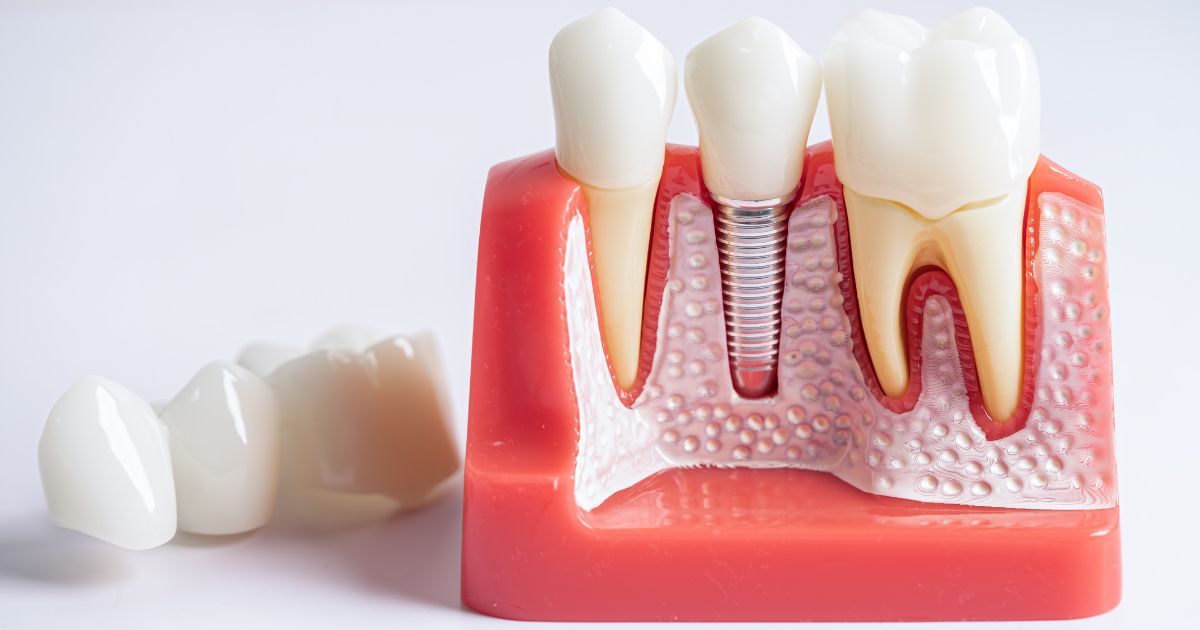Diabetes has been known to affect dental implants and make the procedure more difficult. However, with the right type of care, getting an implant that can improve your appearance is still possible. Tell your oral surgeon about your condition so they can adjust your treatment accordingly. Your surgeon would make the decision about whether you are a suitable candidate for a dental implant if you have diabetes.
Can Diabetes Complicate the Post-Surgery Healing Process?
Diabetes does not impact the actual surgical procedure used for the implant. It may pose risks in the post-operative healing stage. People with diabetes are more prone to infections, and they could develop one at the site of the surgery. The days after the surgical procedure are crucial to its success, as the implant must stabilize and meld into your mouth. An infection could impact your gums at a time when they need to heal, so the procedure can have the highest chance of success. A serious infection in the days after oral surgery can jeopardize the implant and cause it to loosen. In addition, diabetes can also weaken the bone mass that is needed to support the new implant.
Healthy Routines Can Increase the Chances of Success
Medical data shows that the highest rate of implant failure for patients with diabetes occurs in the first year after the procedure. Once the patient can adjust to any potential post-surgical complications, their implant has as much of a chance of success as any other patient.
Patients with diabetes have some control over their post-surgery healing process. By maintaining a proper oral health routine, they can significantly reduce the amount of bacteria in the mouth, thereby lowering the risk of infections. This is particularly important as tissue in someone with diabetes is more prone to inflammation, and even a small amount of bacteria can trigger this response.
You May Still Be a Candidate for Oral Surgery
The good news is that, as long as your diabetes is under control, your oral surgeon may be able to devise a treatment plan that minimizes the risk of infection. Your surgeon would include monitoring your blood sugar as part of your treatment because it is vital that the levels be stable at the outset of the surgical process so you can have the greatest chance of success.
You may be subject to a longer healing process due to your condition, but this does not rule out the possibility of successful oral surgery. Your oral surgeon may adjust your treatment plan to account for your diabetes.
Other options that your surgeon can use, such as bridges and crowns, are often not as effective as implants, and there are still many of the same short-term healing risks. Optimally, your surgeon should use implants because they have the best chance of long-term success. Managing your condition may take extra effort, but the long-term results will be worth it.
Contact the South Jersey Oral Surgeons at Lanzi Burke Oral & Maxillofacial Surgeons for Answers to Your Questions
Contact the South Jersey oral surgeons at Lanzi Burke Oral & Maxillofacial Surgeons to learn more about whether you are a suitable candidate for implants. One of our oral surgeons will perform a complete evaluation of both your physical and oral health to help determine whether implants are a procedure that is right for you. Call 856-582-4222 or contact us online to schedule a consultation. We have offices in Washington Township, Haddonfield, and Woolwich Township, New Jersey, and we work with patients throughout South Jersey.


